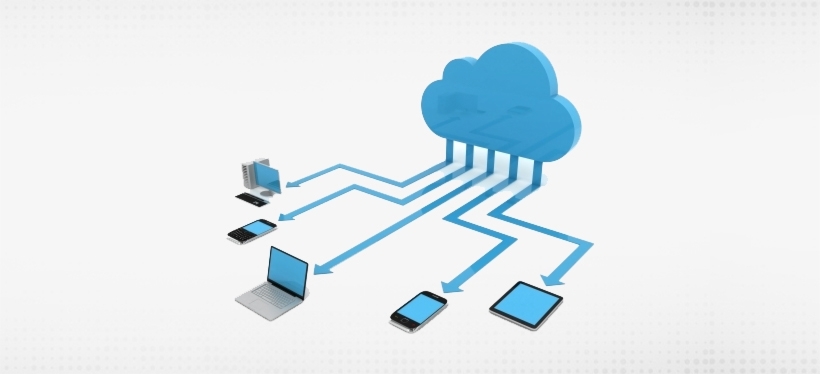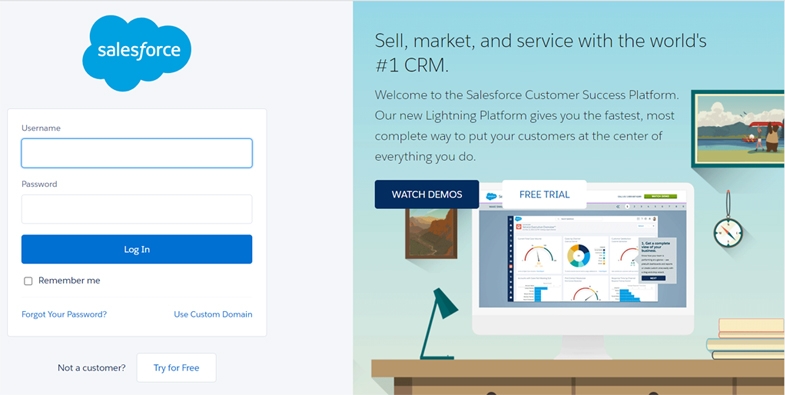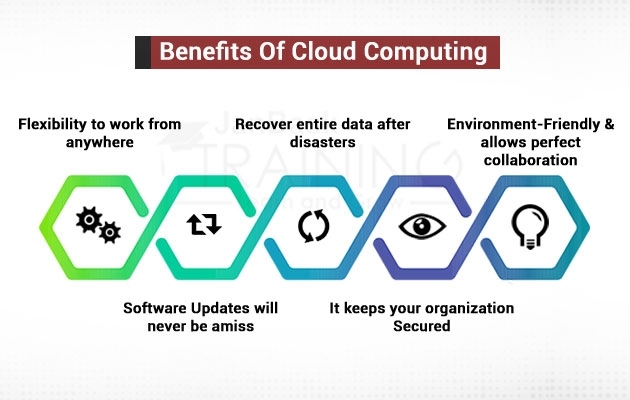07
JanChristmas Offer : Get Flat 50% OFF on Live Classes + $999 Worth of Study Material FREE! - SCHEDULE CALL
In order to give you end-to-end information about what is Cloud Computing we addressed all necessary topics like What is Cloud Computing AWS, What is Cloud Computing examples, how does it work, what are its 6 best benefits that make people adopt it more than ever, and how to make a career in Cloud Computing?
The worldwide Cloud Computing market will keep growing and is expected to reach 482 billion U.S dollars by 2023. Be a part of a rising career path. Talk to us to learn more about making a successful career in Cloud Computing, and will guide you the best.
Cloud Computing is everywhere. According to Gartner, In 2027, the cloud will be the pervasive style of computing. Today, most people think of the cloud as a technology platform. This perspective will shift markedly by 2027. Cloud computing will not only be a technological approach for delivering applications but will also serve as the key driver of business innovation. Today, we will shed more light on cloud computing, its benefits, examples, and more.

The Cloud is the servers that are accessed over the internet, and the database and software that run on those servers. The cloud enables users to access any data, files, and applications from anywhere and through any device as computing and storage happen on the servers in a data center, rather than locally on the specific user device. This is so that users have never to worry about a device breaking down so they can log in and access data from anywhere.
When we say Cloud, it means we can access every bit of the information in real time. So, the associated term “Cloud Computing'' and to answer what is Cloud Computing, is all about storing data, programs, etc., and accessing them over the internet rather than the hard drive of your computer.
In local storage and computing, you need to be physically present in front of your computer, but for Cloud Computing, you can store unlimited data from anywhere. The same is the case for accessing data from the computer. Besides the ease of storing data in the cloud, you can also access your data over the internet without any effort. You just need to have internet access on your smart device. It is also not necessary that you access the stored data from any particular device. You can access all of them from any of your smart devices like mobile phone, tablet, laptop, or any other device. The end result is always the same.
In fact, most of Google's services like Gmail, Google Maps, Google Calendar, etc. are known as Cloud Computing to simply answer “What is Cloud Computing.”
What is Cloud Computing with AWS? Cloud Computing with AWS is one of the most comprehensive and well-adopted platforms used by millions of customers including startups, enterprises, and government agencies, as it provides more agility, an innovation that too at a reduced cost.
By now we have answered what is Cloud Computing, but there is much to unfold. Check out our next section to learn about various types of Cloud Computing, examples, and real-life applications of Cloud Computing.
The Top Cloud Computing Providers are Windows Azure, Google App, Google App Engine, Amazon EC2 & S3.
AWS Solution Architect Training and Certification

Here are the types of Cloud Computing that have evolved over time:
What is Cloud Computing “Public Cloud” - A third-party cloud service provider operates a public cloud. Microsoft Azure is an example of a public cloud. In the case of the public cloud, the hardware, software, and related infrastructure is owned and managed by the cloud provider.
What is Cloud Computing “Private Cloud” - A private cloud is a Cloud Computing resource that is used exclusively by an organization or business. Some companies pay a third-party service provider to host their private cloud. The services and infrastructure are maintained on a private network.
What is Cloud Computing “Hybrid Cloud” - Hybrid cloud combines public and private cloud allowing data and applications to be shared among them. A hybrid cloud thereby offers more flexibility as data can be easily shared between a private and public cloud.
To explain what a Cloud Computing example is, here are some of the best examples to mention.
Wondering how these amazing applications work and how Cloud Computing functions? Keep reading to learn more about what is Cloud Computing functionality is in our next section.
Now, this is something that is really important for each one of us to know. Cloud Computing varies for individual users and business users. What we intend to say here is, when a business group wants to use Cloud Computing, they need to implement any one of these options mentioned below;
Read: 6 Steps On How to Build an Impressive AWS Developer Resumes (With Samples)

Some businesses choose SaaS, where they need to subscribe to a particular application for accessing the storage facility over the internet. Salesforce.com is an example of SaaS. Even Netflix is a SaaS company that sells software to watch licensed videos on demand.

As the term says, when you are willing to use PaaS for storing your data, businesses have the freedom to create a customized application that can be used for the whole organization. You just need to create an application and give access to your employees.
This is what is commonly used by giants like Microsoft, Google, Amazon, etc. where storage space can be rented out by the cloud owner. You can see an IaaS example as Netflix provides you its services because of being a consumer of Amazon’s Cloud service.
Fass is also known as serverless computing. It breaks cloud applications into smallest parts that perform only when needed. You basically pay for services as and when used.
This is how Cloud Computing works and it's core functionalities. Moving ahead we will discuss what is Cloud Computing benefit. Keep learning!
Here are some of the key advantages of Cloud Computing and how is Cloud Computing used that makes it so indispensable.

Not yet switched to Cloud? After knowing these benefits you will definitely start using them.
By now we are sure you know what is Cloud Computing, what is Cloud Computing AWS, Cloud Computing examples, and its benefits. Don’t you think the way we are dependent on “CLOUD” making a career in Cloud Computing will be the best move? Explore our next section to learn about how to make a career in Cloud Computing.
Cloud computing is the backbone of various applications in art, business, data storage and backup services, education, entertainment, management, social networking, etc. The most widely used cloud computing applications are given below -
Cloud computing has revolutionized the way organizations and individuals use technology. Its versatility and scalability have led to a wide range of applications across various industries. Here are some of the top applications of cloud computing:
Now that you know how interesting and in-demand Cloud Computing is, what is cloud computation functionality and much more. We will now guide you about making a successful career in Cloud Computing. Here are the tips for what is Cloud Computing career path.
There are several job profiles that come under the Cloud Computing domain-like:
Choose which one you have more interest in, the right career path, and prepare accordingly.
Due to increased demand for cloud computing, there is a surge in demand for cloud professionals, and the salary they are offered appears to be very lucrative and hard to miss.

Solutions Architect- The average solution architect salary in the USA is $147,461 per year or $70.89 per hour.
Learn the fundamentals of Cloud Computing and the essential skills by enrolling for a certification course in Cloud Computing. Enroll in a course that has an extensive curriculum and offers courses in various domains like:
You need to have knowledge and expertise in using programming languages like SQL, R, Python, Ruby, .NET, and PHP to develop and deploy cloud-based applications. Along with these, you will also need workable skill-sets in Machine Learning, Database Management, Operating Systems, DevOps, Serverless Architecture, and Automation.
An internship is the best way to get practical knowledge of the subject. There are various job portals that have posts related to internships or you may even look out on company websites for a suitable position. Get hands-on knowledge on subjects like cloud monitoring, Amazon DynamoDB & Redshift, AWS CloudFormation, Networking to mention a few.
These are some of the essential tips to work upon when planning to make a career in Cloud Computing. On that note here’s a quick recap of all that we have learned.
To give you end-to-end information about what is Cloud Computing, we addressed all necessary topics like What is Cloud Computing AWS, What are Cloud Computing examples, how it works, what are its 6 best benefits that make people adopt it more than ever, and how to make a career in Cloud Computing?
The Cloud Computing Market size is expected to grow from USD 0.58 trillion in 2023 to USD 1.24 trillion by 2028, at a CAGR of 16.40% during the forecast period (2023-2028). Be a part of a rising career path. Talk to us to learn more about making a successful career in Cloud Computing, and will guide you the best.
Do share your reviews about this blog, and please don’t forget to like and share!
Q1) What is cloud computing with an example?
Ans- Cloud computing provides various services through the Internet, including data storage, servers, databases, networking, and software. Cloud storage has exponentially grown popular among individuals needing more extensive storage space and businesses seeking an efficient off-site data backup solution. Users can access Google Docs, Microsoft 365, Email, Calendar, Skype, WhatsApp, Zoom, AWS Lambda, etc., among many examples of cloud computing.
Grab a cloud computing course by joining a cloud computing training program and build your career on a solid foundation of knowledge and expertise.
Q2) Why do we need cloud computing?
Ans- Cloud development lets users get their applications to market swiftly. Now, there is no more data loss due to hardware failures from networked backups. Cloud computing uses remote resources, saving organizations the cost of servers and other equipment. Gain knowledge on what is cloud computing with examples.
Q3) How does cloud computing work?
Ans- Cloud computing functions by having companies host or maintain massive data centers that provide the security, storage capacity, and computing power to support cloud infrastructure. Clients pay for the rights to use their clouds and an ecosystem to communicate between devices and programs.
Get a detailed overview of cloud computing definition, what is cloud technology, and what cloud computing pros and cons are by joining a cloud computing course.
Q4) What are the types of cloud computing?
Ans- The main three types of cloud computing are public, private, and hybrid. You can learn cloud computing and cloud computing pros and cons by enrolling in a cloud computing training program and securing a cloud computing course that will enhance your career.
Q5) What are the Models of cloud computing?
Ans- The Top Cloud Computing Service Models-
Learn what is cloud computing with examples and its models in detail from cloud computing training and earn a cloud computing course that will boost your career.
Q6) What are the uses of cloud computing?
Ans- There are a plethora of utilizations of cloud computing. Some of them are-
Once you learn what is cloud computing, what is cloud technology, and what cloud computing pros and cons are, you can utilize cloud computing in various fields. Learn cloud computing by enrolling in a cloud computing course.
Q7) What are the benefits of cloud computing?
Ans- There are multiple benefits of cloud computing. Some of them are-
One can reap the benefits and use it for a successful career. Join a cloud computing training program and learn cloud computing.
Q8) What is the Career scope in cloud computing?
Ans- A career in cloud computing is gratifying. Several cloud computing job openings and opportunities within the field may be suitable for you. Gartner® forecasts worldwide public cloud end-user spending to reach nearly $600 billion in 2023.
If you are curious about what is cloud computing or what is cloud technology, join a cloud computing training program and learn all about cloud computing pros and cons.
Q9) Which courses are available for cloud computing?
Ans- There are multiple courses available online that suit your requirements. Some of the important ones are-
If you want to secure your career in cloud computing, join a cloud computing course and learn the cloud computing definition, types, uses, etc., from cloud computing training.
Q10) What is the Salary of a Cloud Engineer?
Ans- According to most research, the average cloud engineer salary in the USA is $130,753 per year or $62.86 per hour. Entry-level positions start at $110,013 annually, while most experienced workers make up to $165,755 annually. If this is your dream career, learn cloud computing and cloud computing pros and cons by enrolling in a cloud computing training program.
Through market research and a deep understanding of products and services, Jyotika has been translating complex product information into simple, polished, and engaging content for Janbask Training.

Cyber Security

QA

Salesforce

Business Analyst

MS SQL Server

Data Science

DevOps

Hadoop

Python

Artificial Intelligence

Machine Learning

Tableau
Interviews
Top aws devops software course training institute in hyderabad
Really good information, this information is excellent and essential for everyone. I am very very thankful to you for providing this kind of information. best aws devops software course training institute in hyderabad top aws devops software course training institute in hyderabad
Top aws devops software course training institute in hyderabad
Thank you so much for sharing .
Harry
I have a Cloud Computing interview lined up, and this resource will help me a lot. At Least now I don't have to put in much time looking for the best questions for the interview.
Jax Williams
Can you guide me more on interview preparation and what not to do in the interview?
Amari Jones
I am aiming to make a career in Cloud Computing and these questions will definitely help me prepare. What will be the right certification for me to start with?
Zane Brown
Does janbask provide a course for Cloud Computing, what is their fee?